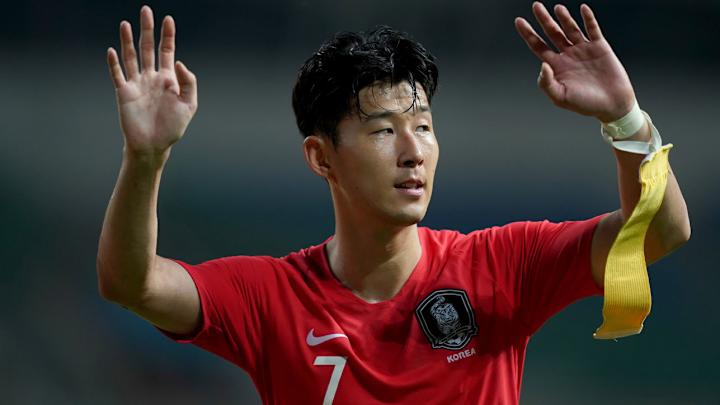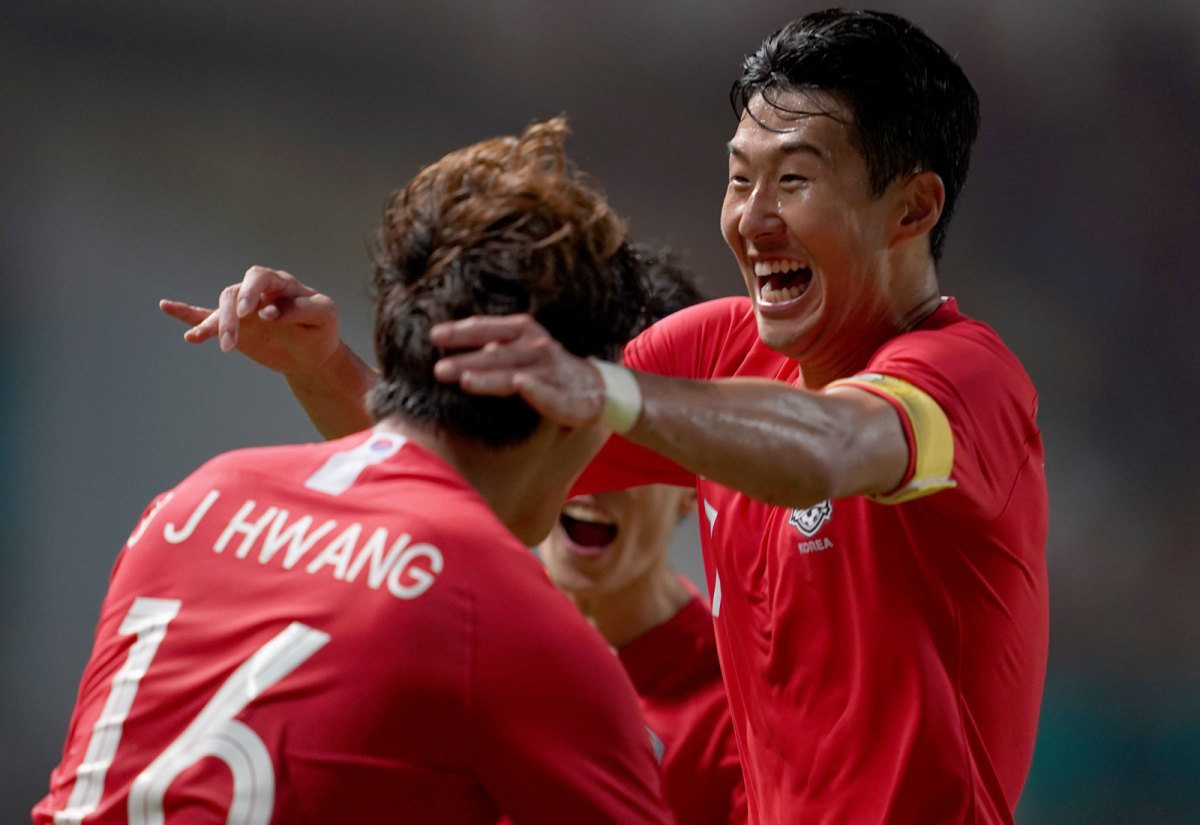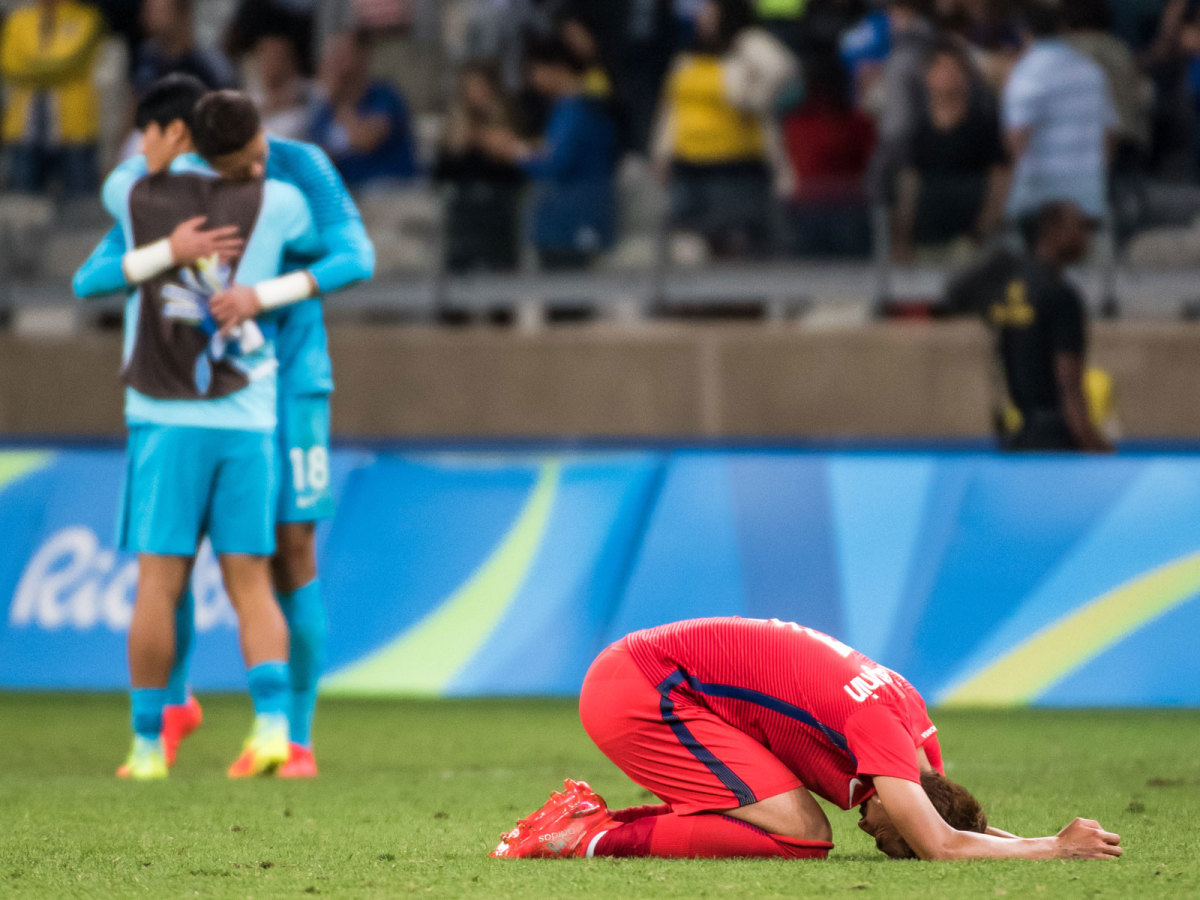For South Korea, Tottenham's Son Heung-Min, Stakes Soar at Secondary Tournament

On July 8, 2020, Tottenham forward Son Heung-min will turn 28. For most players around the world, that wouldn't mean much, aside from receiving congratulations. But for Son, it means he will have to begin 21 months of military service, as required by his native South Korea.
Unless, that is, he can earn an exemption. There are two ways to earn a sporting exemption–an Olympic medal of any kind or a gold medal at the Asian Games. Global prestige is a valuable commodity in South Korea, and it can be achieved through sport. And that is why, on Wednesday, two days after his club's sensational win over Manchester United at Old Trafford without him, Son turned out at the Pakansari Stadium in Cibinong, West Java, Indonesia, for an Asian Games semifinal victory over Vietnam. South Korea will face Japan in the final there on Saturday, where more than just a medal is on the line.
There is something vaguely farcical about the set-up. This is a competition for Under-23 squads, and Son has been included as one of the three permitted overage players–a regional edition of the Olympics, essentially. The Asian Games is not recognized as a FIFA event. Tottenham was under no compulsion to let him go and did so only after reaching a deal with the South Korean football association that he will not be called up for the November international fixtures. In 2014, when South Korea took gold at the Asian Games, Bayer Leverkusen would not let him play, but Spurs seem to have accepted that this is the lesser of two evils: lose him for a month now rather than for 21 months in a couple of years.
Son didn’t even play in South Korea’s opening game, a 6-0 victory over Bahrain. He then came off the bench in a 2-1 defeat to Malaysia, before starting the vital third game against Kyrgyzstan, which South Korea needed to win to progress. It did, thanks to Son’s winner.
Nice one Sonny!! 🙌👌 https://t.co/7swD9oWRpH
— India Spurs (@IndiaSpurs) August 20, 2018
A 2-0 win over Iran followed before a 4-3 extra-time victory in the quarterfinal over an Uzbekistan team that finished with nine men. South Korea may be the tournament favorite–its players, after all, have more to play for than most–but it is doing it the hard way.
Son’s situation has raised numerous questions about South Korea’s military service legislation, not least because his own success and dedication to his career is largely responsible for him having to slog around almost empty stadiums in Indonesia to avoid losing two seasons when he is at his peak. He could have played at the 2012 Olympics, when South Korea beat Japan to take bronze and earn exemptions, but he preferred to stay with his club, Hamburg.

What’s even more ludicrous is that if Son has to do his military service, he won’t have the option of playing of playing in the Korean second division for military club Sangju Sangmu, which is how most footballers fulfill their service. There is a regulation that says all Sangju players have to have played for a K-League club for at least six months before joining Sangju. That could theoretically be arranged–but for the fact that Son dropped out of Dongbuk High School at the age of 16 to head to Hamburg, and South Korean law stipulates that those who have not finished high school are prohibited from active service. Son, arguably the best footballer in South Korean history, would be stuck for almost two years in a desk job instead of continuing the prime of his career.
There are other possibilities. Park Chu-Young, who played for Monaco and Arsenal, for instance, was given a 10-year deferment in 2012 to allow him to complete his playing career before performing his military service. That prompted such an outcry, though, that such dispensation may not be granted even if Son sought it. Then there are the 2020 Olympic Games, which begin three weeks after Son's 28th birthday. Son probably would be granted a brief deferment to play in that tournament, but there is, of course, no guarantee South Korea would finish in the top three, no matter how motivated it was. In 2016, when Son did play, South Korea lost in the Olympic quarterfinal to Honduras. Son’s tears after that defeat prompted a nationwide petition in which thousands of signatories volunteered to do double military service if Son could be excused.

Realistically, completing the job this week is Son’s best chance of achieving his exemption. But the whole scenario feels unsatisfactory. Given tensions with North Korea, it’s not unreasonable that there should be a feeling that everybody should have to do their patriotic duty, and the feeling that superstar sportsmen should not be excluded from that is understandable. But then football is a brief and unforgiving career; it’s perhaps not unreasonable to think that in certain professions in which physical vigor is essential, a deferment is desirable, especially if that physical prowess is to be confined behind a desk.
But most absurd, perhaps, is that a player who played in South Korea’s World Cup win over Germany in June, and who has played in the knockout phase of the Champions League, should gain an exemption not through those achievements but by playing in a regional youth tournament that is a largely unknown quantity outside of Asia in front of crowds of a few hundred.
